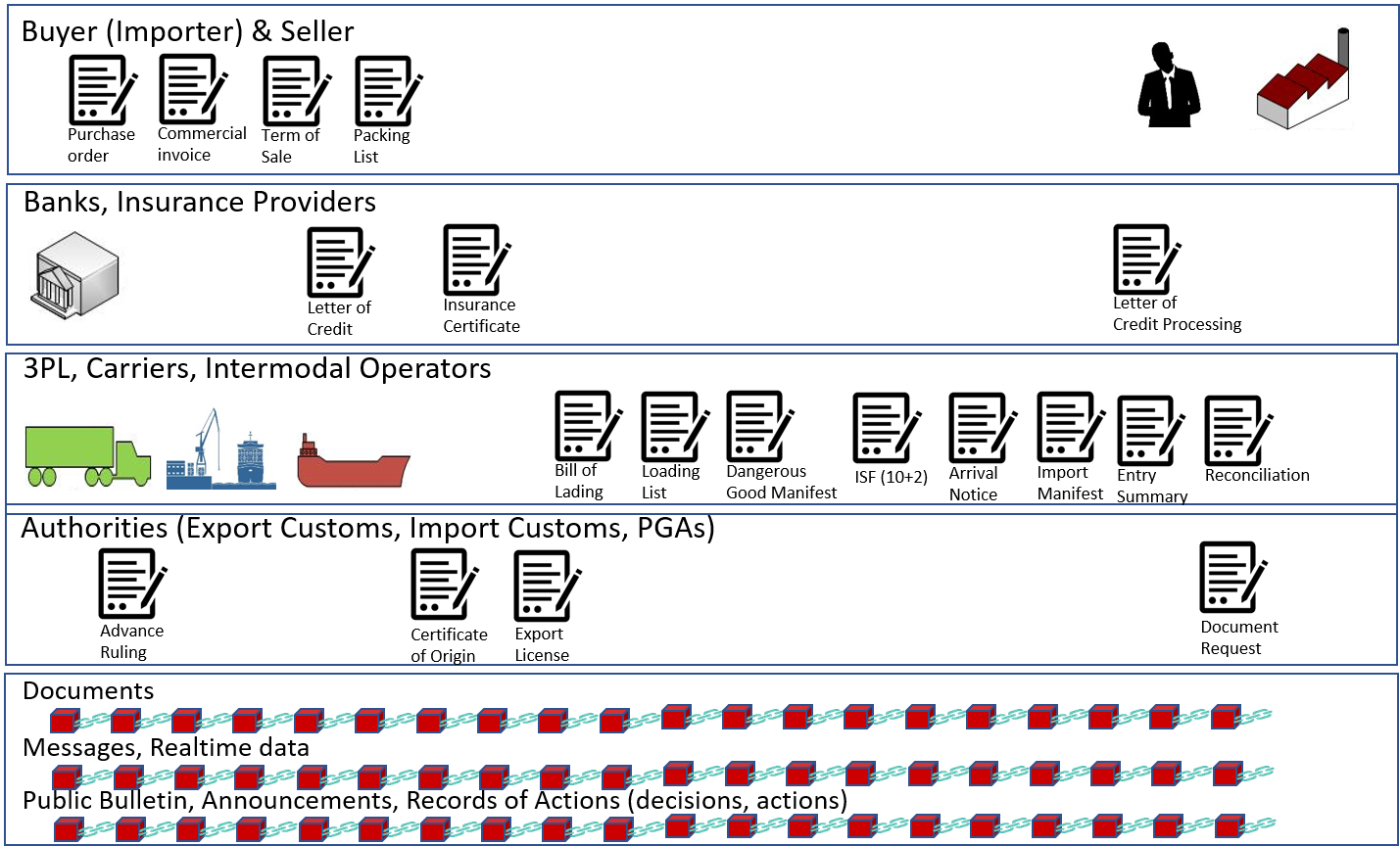Transforming Trade and Ensuring Global Supply Chain Security with Blockchain Dr. Larry Shi, UH and Dr. Eleftherios Iakovou, Texas A&M

Project Fact Sheet
Final Report
Executive Summary
Blockchain is a technology capable of providing a global view of the supply chain for visibility without using a traditional centralized infrastructure. As such, it holds the potential to improve efficiency in the global supply chain, facilitate data sharing and data exchange among supply chain stakeholders including the regulatory authorities and Customs, ensure compliance with the trade laws, and facilitate legitimate cross-border commerce.
Recent global supply chain digitalization initiatives attempt to demonstrate the value of blockchain for end-to-end (E2E) supply chain visibility, facilitating collaboration along the supply chain value chain, and allowing the stakeholders (e.g., suppliers, producers, logistics providers/3PLs, shippers, importers, exporters, Customs brokers, and regulatory agencies) to share and exchange information with improved effectiveness.
Realizing its potential to transform global trade, many global trade-oriented international organizations have created blockchain-related initiatives. The efforts may include setting up a team to identify use cases of blockchains to the global trade, develop future plans in terms of standardization and coordination, or create a framework for pilots and PoCs that may involve multiple stakeholders. According to the WCO, with support of blockchain technologies, Customs would be able to collect the necessary data in an accurate and timely manner (all data tied to the imported goods such as seller, buyer, price, quantity, carrier, finance, insurance, status and location of the commodity, product information, etc.). Data conveyed by the blockchains could be integrated automatically into the Customs systems and validated against the data submitted by the traders and carriers. With incoming adoption of the blockchains by the global supply chain industries, functions of Customs could be more integrated with the digital platforms of global supply chains such as goods could be automatically cleared within the supply chain blockchains or distributed ledgers.
Synopsis
The overarching goal of the research effort is to: (i) explore innovative opportunities provided by blockchain and smart contracts for the purpose of transforming operations of relevant CBP components to improve global supply chain data exchange, to enhance automation and data harmonization, to facilitate timely analysis of supply chain risk, and to ensure trade compliance; (ii) identify value and use cases of alternative and new technologies enabled by the blockchain based ecosystem for enhancing missions of CBP components; and (iii) provide recommendations and assessment (technical, business flow, and operation aspect) of the viability of blockchain and related innovations to HSE stakeholders and agencies.
2019 Annual Meeting Presentation
International Journal of Production Research - Yanling Change, Eleftherios Iakovou & Weidong Shi (2019): Blockchain in global supply chains and cross border trade: a critical synthesis of the state-of-the-art, challenges and opportunities, International Journal of Production Research, DOI: 10.1080/00207543.2019.1651946
Article | Blockchain Offers Promise for Securing Global Supply Chain
Podcast | Research Champion at Federal Blockchain News
